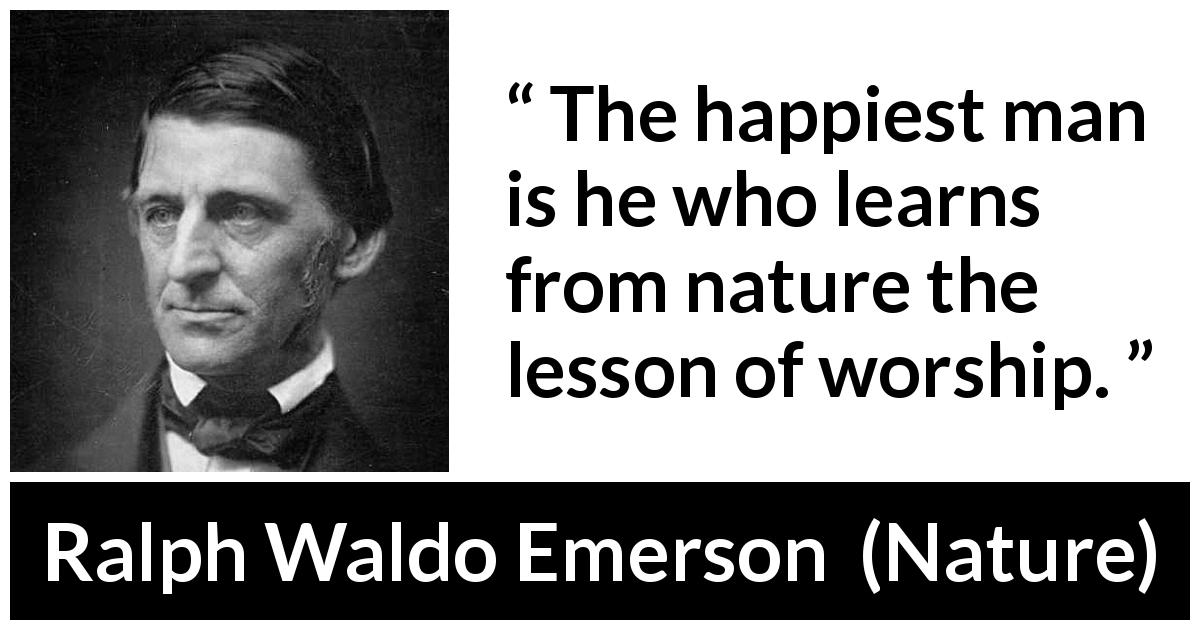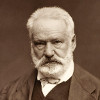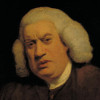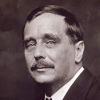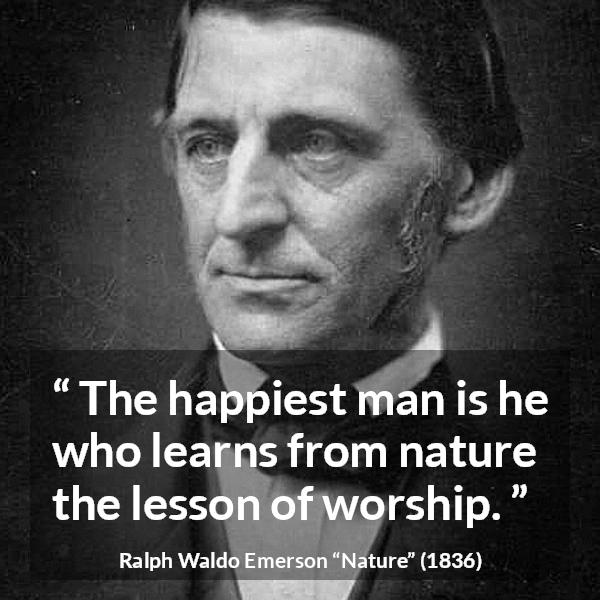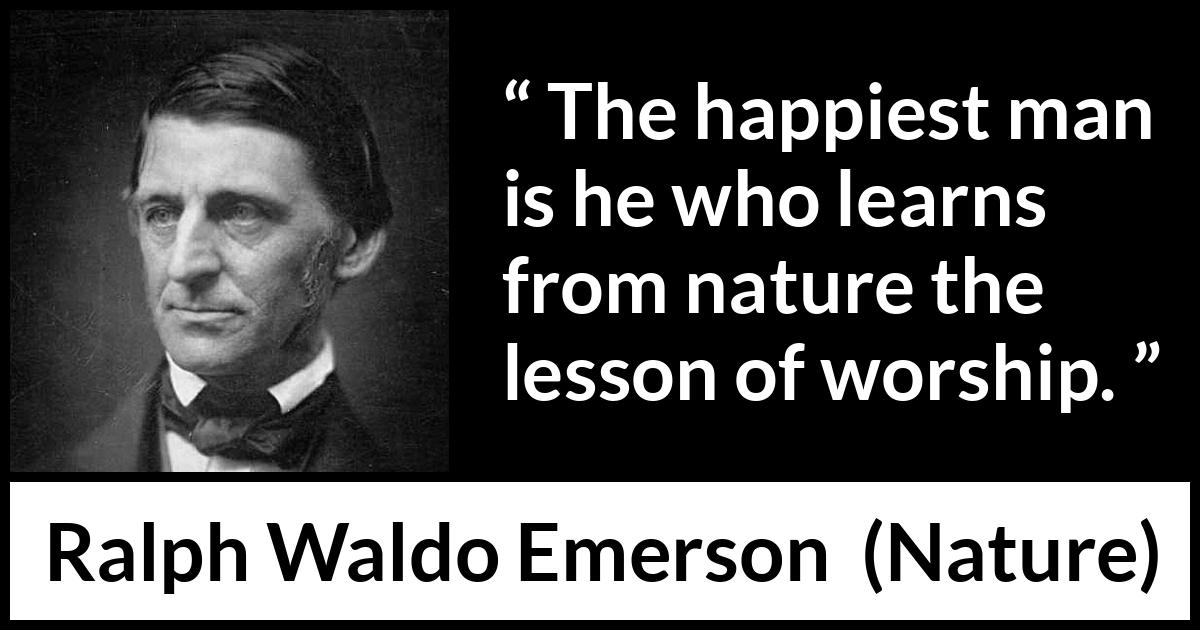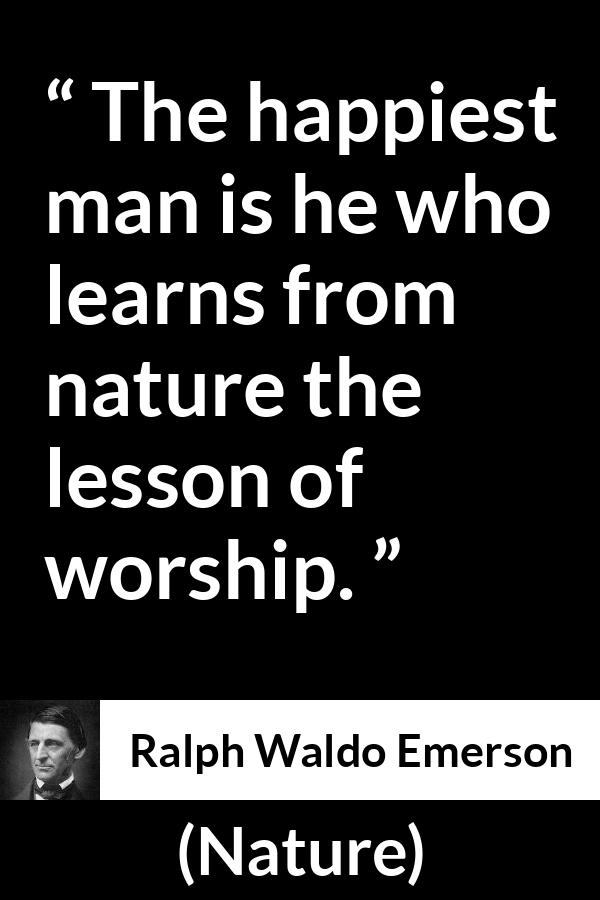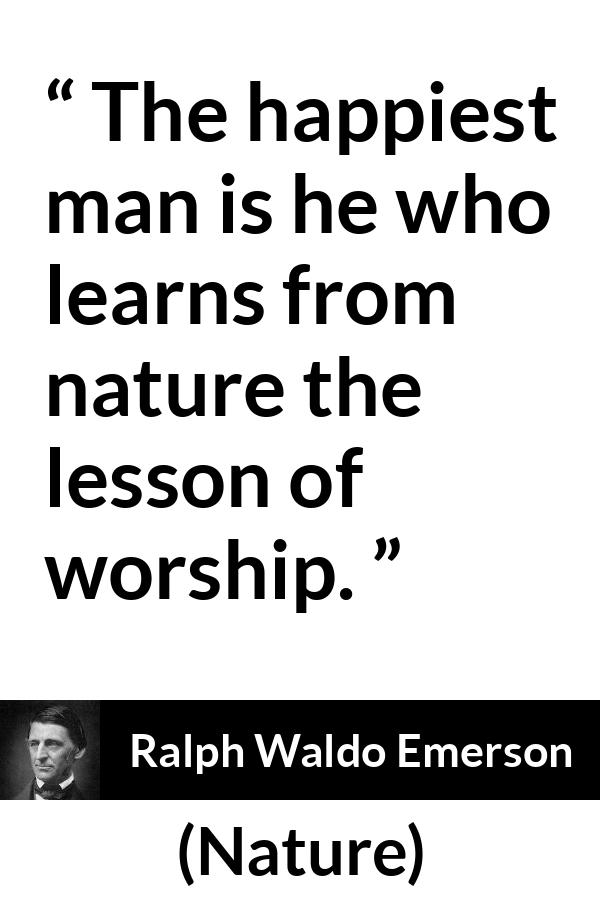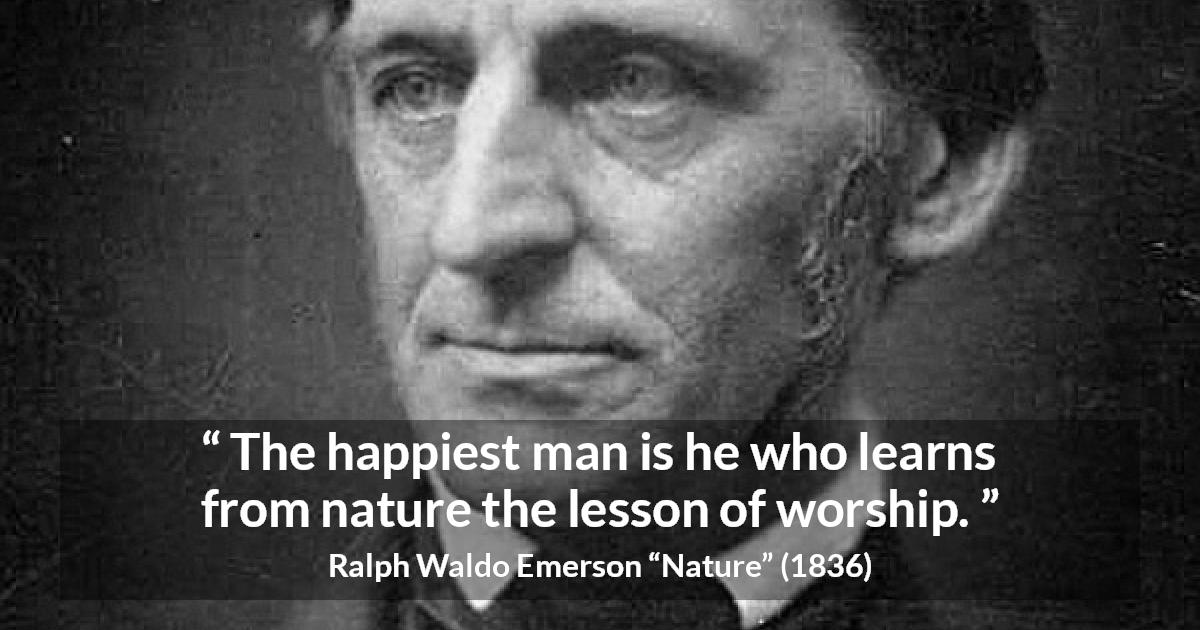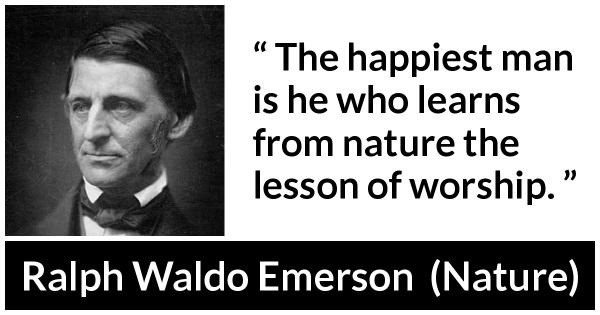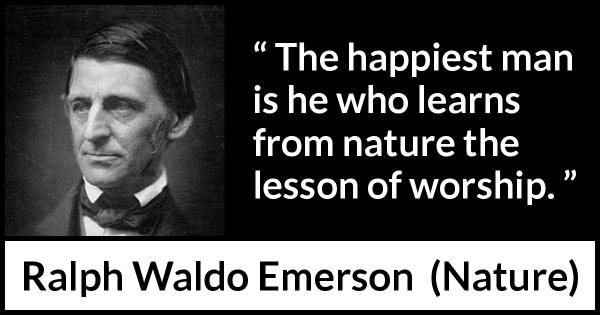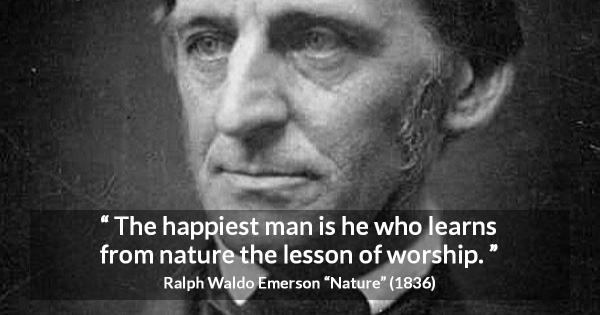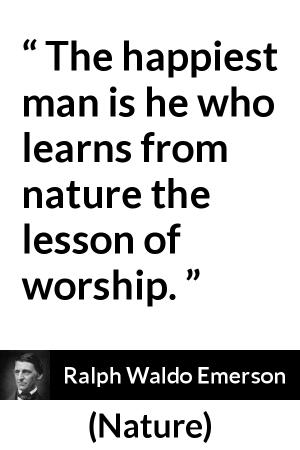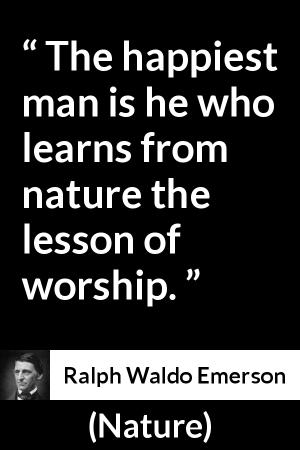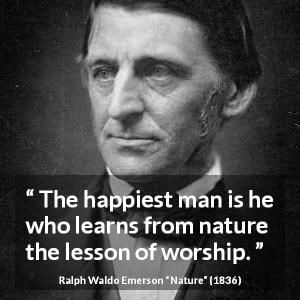“ The happiest man is he who learns from nature the lesson of worship. ”
Ralph Waldo Emerson, Nature (1836). copy citation
| Author | Ralph Waldo Emerson |
|---|---|
| Source | Nature |
| Topic | happiness nature worship |
| Date | 1836 |
| Language | English |
| Reference | |
| Note | |
| Weblink | https://en.wikisource.org/wiki/Nature,_Addresses_and_Lectures/Nature |
Context
“It is a perpetual effect. It is a great shadow pointing always to the sun behind us.
The aspect of nature is devout. Like the figure of Jesus, she stands with bended head, and hands folded upon the breast. The happiest man is he who learns from nature the lesson of worship.
Of that ineffable essence which we call Spirit, he that thinks most, will say least. We can foresee God in the coarse, and, as it were, distant phenomena of matter; but when we try to define and describe himself, both language and thought desert us, and we are as helpless as fools and savasres.” source
The aspect of nature is devout. Like the figure of Jesus, she stands with bended head, and hands folded upon the breast. The happiest man is he who learns from nature the lesson of worship.
Of that ineffable essence which we call Spirit, he that thinks most, will say least. We can foresee God in the coarse, and, as it were, distant phenomena of matter; but when we try to define and describe himself, both language and thought desert us, and we are as helpless as fools and savasres.” source
